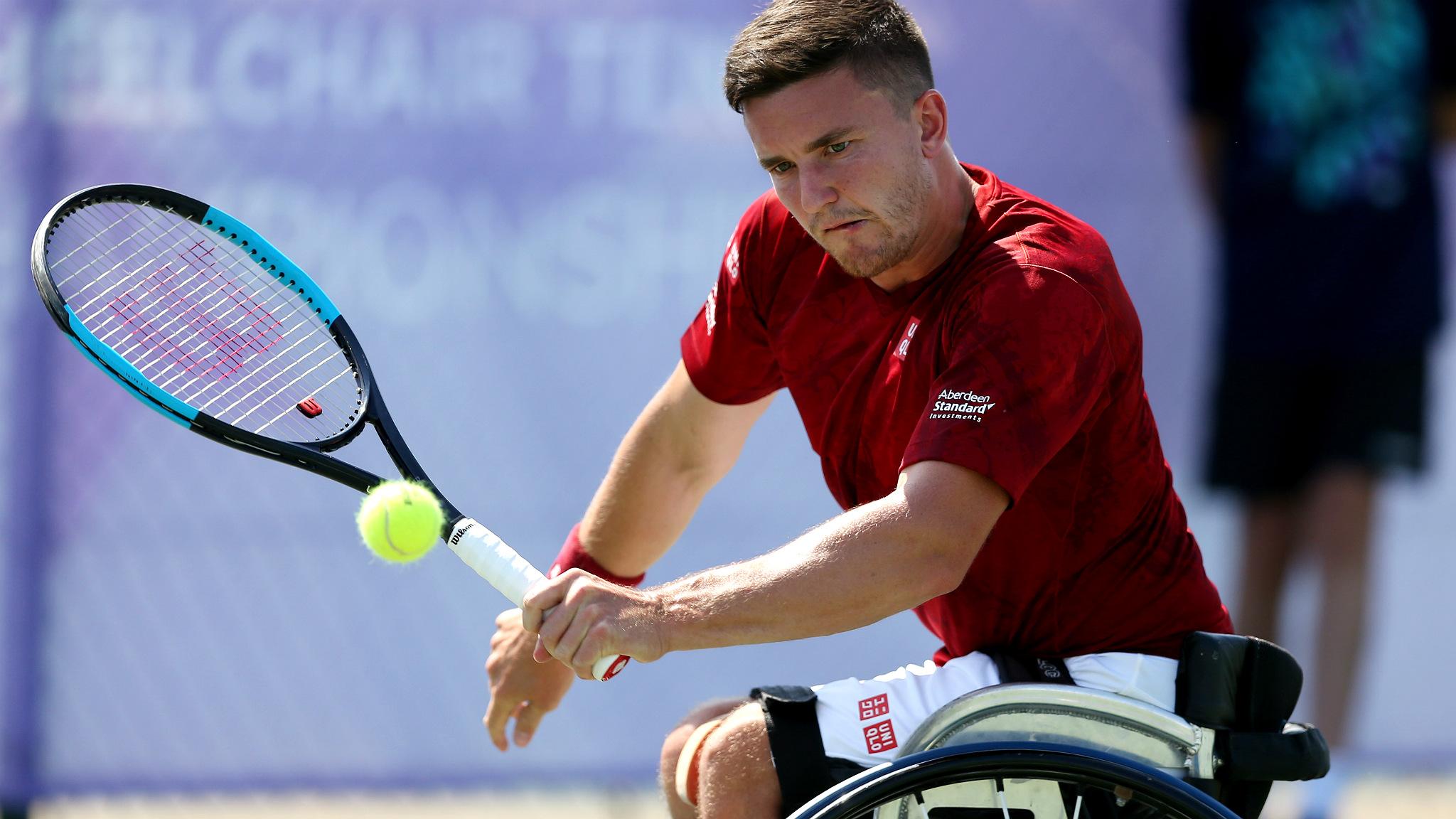Tennis: UK coaches 'probably neglected' says LTA's Brett
- Published
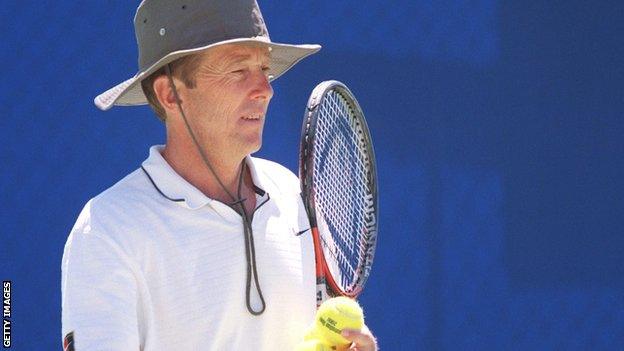
Bob Brett was appointed LTA director of player development in June
ATP World Tour Finals, O2 Arena London, November 9-16 |
Coverage: Afternoon sessions (14:00 GMT) and first semi-final (14:00 GMT) on BBC2/BBC Sport website, final on BBC3/BBC Sport website (19:00 GMT); live commentary of each match on 5 live sports extra, live text commentary on BBC Sport website |
Coaches across the UK "have probably been neglected," and funding may have encouraged a sense of entitlement among up and coming British players.
Those are the initial thoughts of Bob Brett, who after a lifetime on the road coaching the likes of Boris Becker, Goran Ivanisevic and Marin Cilic, is now charged with developing more than just a trickle of top 100 British players.
The 61-year-old Australian - who formally started work as the LTA's Director of Player Development in September - demands hard work and punctuality from his players and staff. He believes it's far better to be early than simply on time, and woe betide anyone who leaves balls on the court after a session has finished.
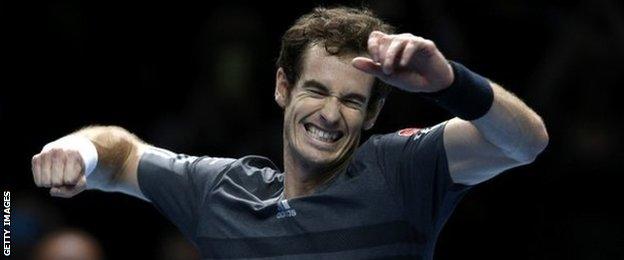
Murray has won two Grand Slam titles and an Olympic gold medal
"Bob's old school and right now that's what the game needs in this country," is the view of the four time Wimbledon semi-finalist Tim Henman.
Brett's challenge is to foster a structure which identifies talented children, and then provides the best environment for them to succeed. Part of the solution may well be more carefully targeted funding.
"Funding is always a questionable aspect of development," Brett said, in a wide ranging BBC interview.
"Before there was funding, people were doing everything possible with not much money. I think people have seen the results from funding and think 'I'm entitled to funding,' instead of having standards that are tougher and more strenuous and then getting the funding.
"It's about giving funding with the right reasons and to the right athletes."
Coach education will also be a major part of Bob Brett's strategy.
Tim Henman on Bob Brett |
|---|
"Bob's old school and right now that's what the game needs in this country. You've got to have that mental toughness to say this is my schedule, these are the things I'm going to work on. We wish him all the luck in the world." |
"I think there are a lot [of coaches] who are very enthusiastic and can work with younger players, but teaching them how to take those players further along is very important. The coaches probably have been neglected across the country and it's important for us to support those coaches and try to help them take their players to higher levels."
Brett says he definitely has no intention [at this stage] of buying in foreign talent to assist him, in the way that Paul Annacone and Brad Gilbert were hired at great expense in the past. He wants to develop home grown coaches who "are going to be there for a long time".
"I'm a great respecter of the way Bob works and the fact that he's been out on the road," said the former British number one Andrew Castle, before adding a word of caution on the BBC set at the World Tour Finals.
Andrew Castle on Bob Brett |
|---|
"His problem is working with a system where there is cultural change required. To turn around an organisation as big and complicated as the LTA is a big ask. You have to turn round an oil tanker and upset some people along the way. Once again we talk about change taking time. Am I optimistic? I think it's difficult to be optimistic when you've been in the game as long as we have to suddenly think you're going to start producing a pipeline of great players." |
"His problem is working with a system where there is cultural change required. To turn around an organisation as big and complicated as the LTA is a big ask. You have to turn round an oil tanker and upset some people along the way."
Brett has already visited all 19 of the country's High Performance Centres - a number which he says he will definitely be reducing.
"I think in the last seven or eight years there was a tendency to name [High Performance] Centres without necessarily the real monitoring of it," he told me.
"It also creates a false sense of security: people maybe became complacent because of the funding that was then given to them instead of having to deliver."
Brett will be spending 40 weeks a year in the UK in an attempt to breed a greater number of self-sufficient professionals. And there is always the hope that while he is here, he will also unearth the odd gem or two.
"The first things that I look for are hands, eyes and feet and when you look at that, you think: 'Ah, this is something a little bit different.' The ball comes out of the racquet better, the hand arrives at the hitting point a little bit easier, and the footwork is better.
"I've seen one young player here who I've thought, maybe this could be something."
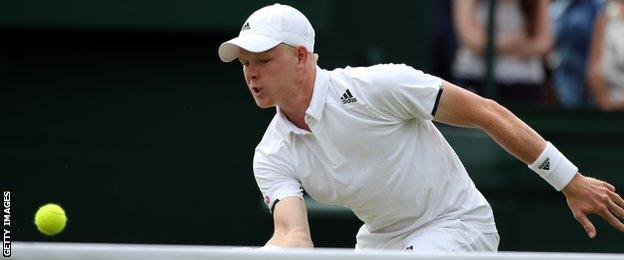
Kyle Edmund is the leading hope among Britain's teenage boys
You can listen to the full BBC Radio 5 live interview with Bob Brett here.
- Published13 June 2014
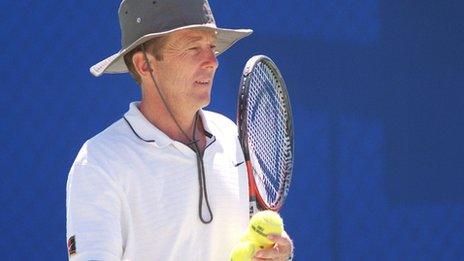
- Published12 November 2014
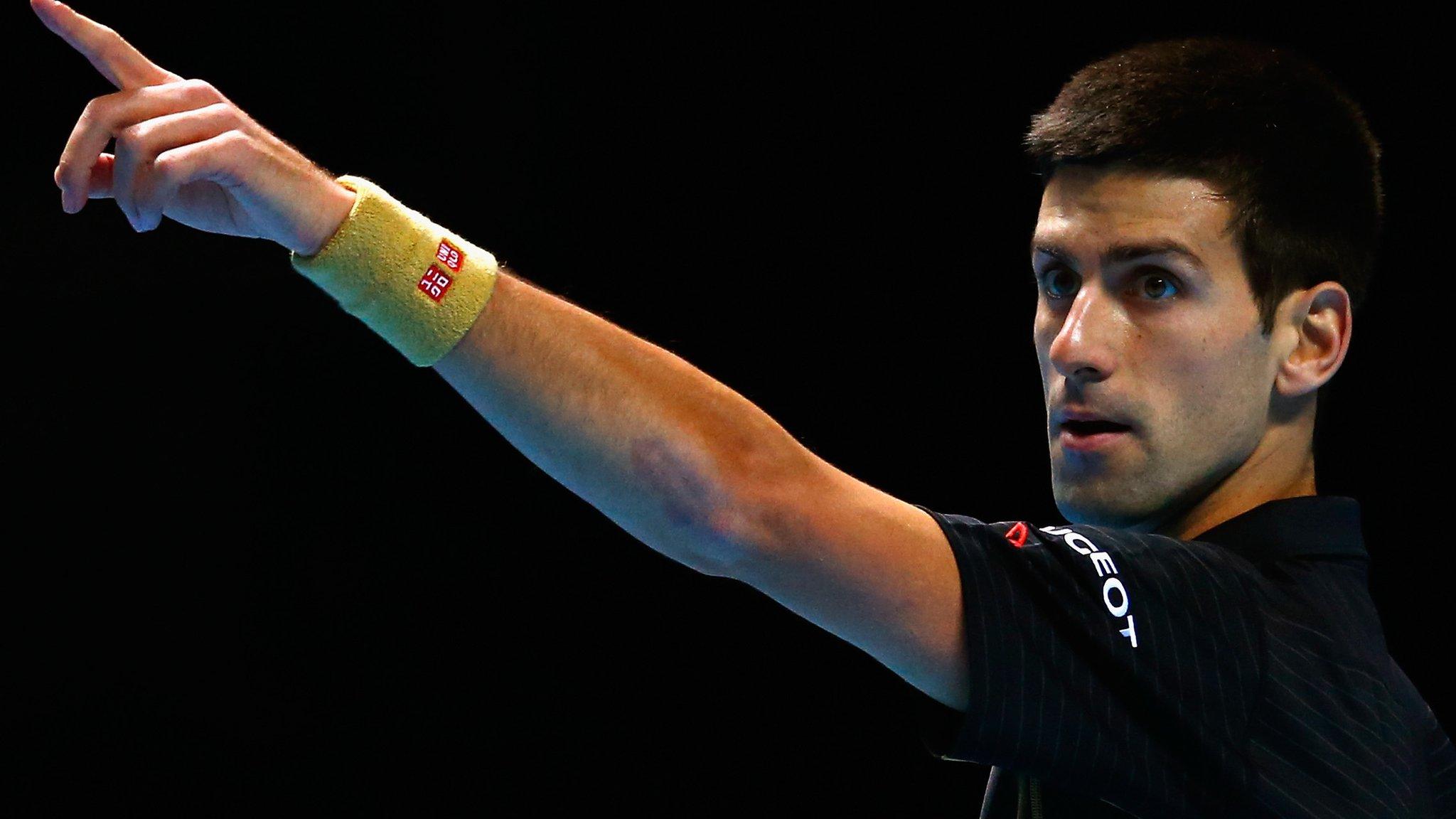
- Published12 November 2014
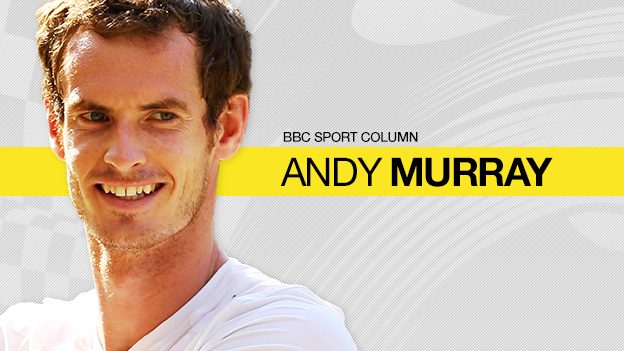
- Published12 November 2014

- Published12 November 2014

- Published11 November 2014
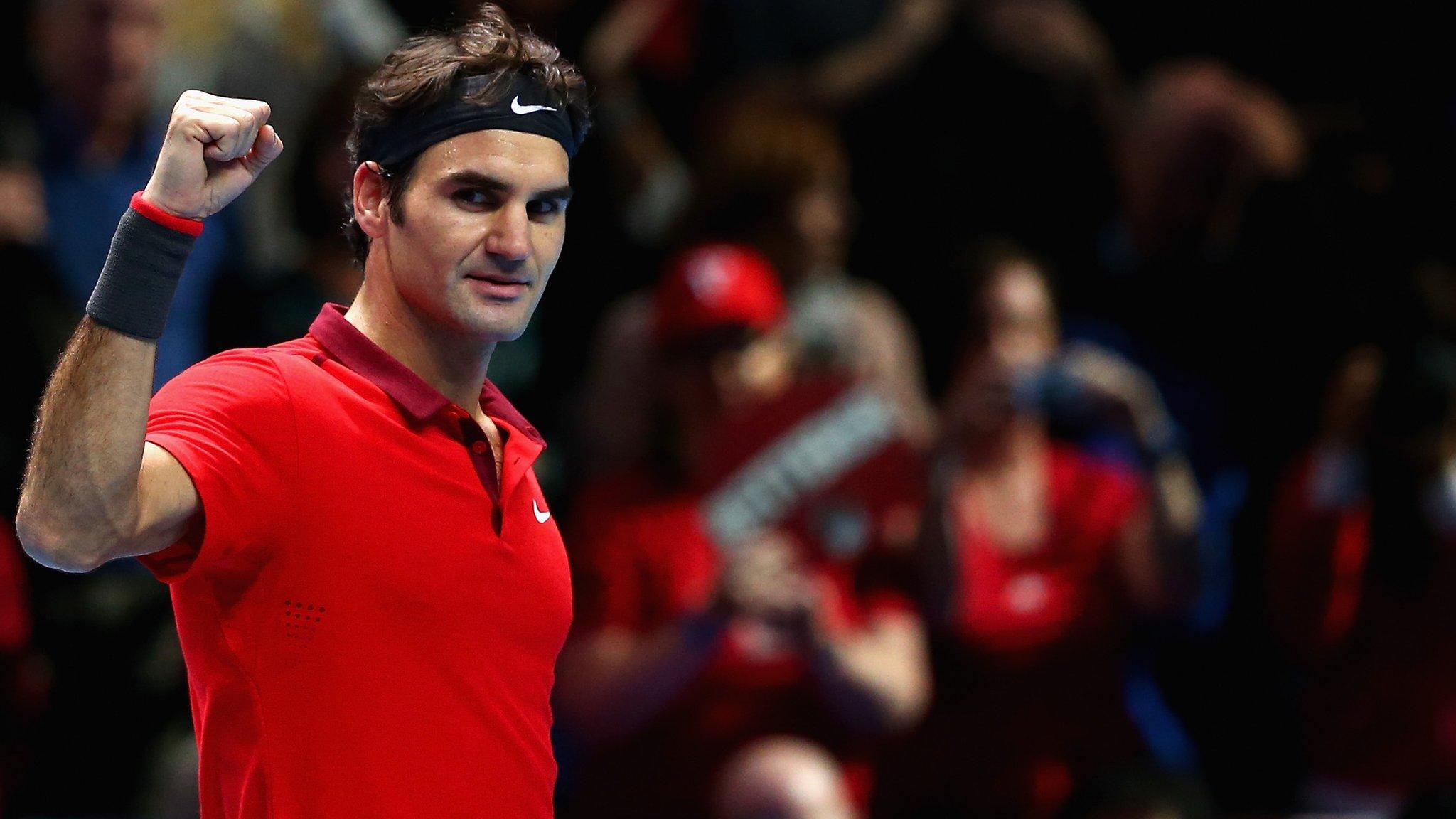
- Published8 November 2014
- Published7 November 2014
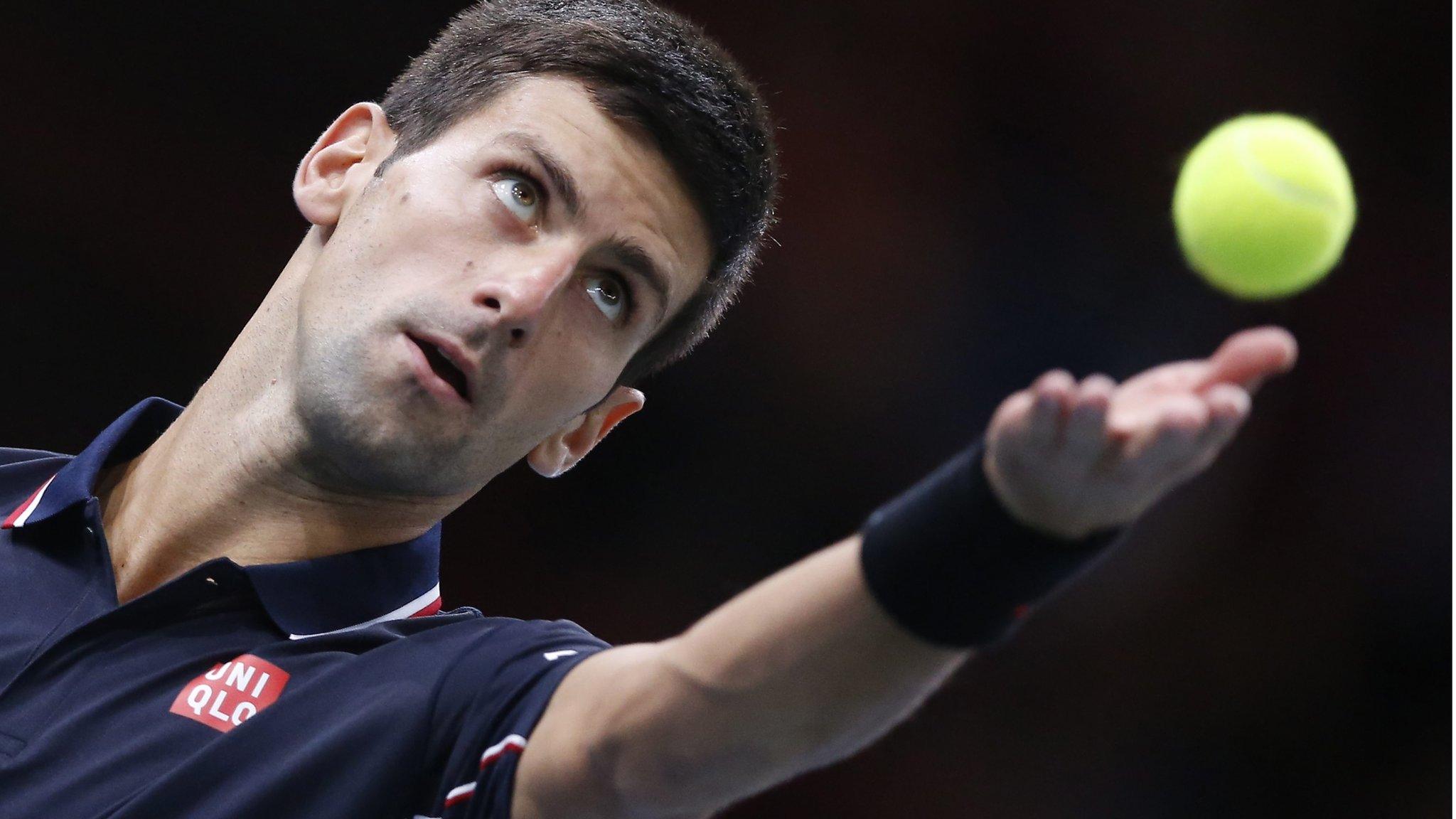
- Published3 November 2014
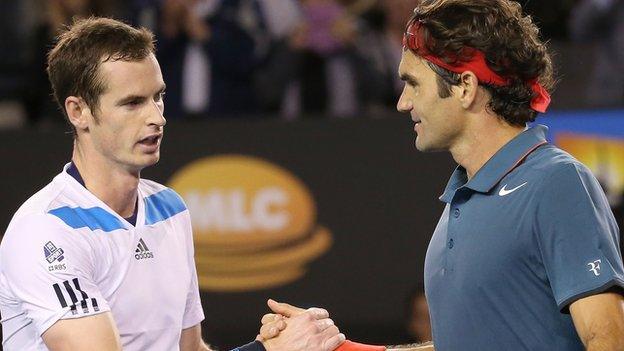
- Published8 November 2016

- Published17 June 2019
